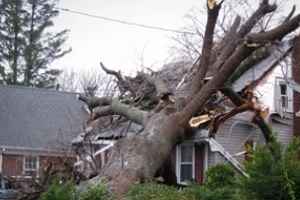 As a landlord, if you are unable to collect rent due to tenant negligence, a natural disaster or any other unforeseen reason, a policy for homeowners insurance will not provide coverage for this loss. However, this particular loss is covered under a landlord policy. This review discusses the importance of landlord insurance and what all a typical policy should cover.
As a landlord, if you are unable to collect rent due to tenant negligence, a natural disaster or any other unforeseen reason, a policy for homeowners insurance will not provide coverage for this loss. However, this particular loss is covered under a landlord policy. This review discusses the importance of landlord insurance and what all a typical policy should cover.
What is Landlord Insurance?
Landlord insurance is a form of insurance that covers property owners from financial loss related to the rental property. It is specifically for property owners and managers that do not live in the real estate they own or manage. This form of financial protection is generally necessary to fill in the gaps that are left from a standard home insurance policy, which typically only covers the costs associated with the homeowner and does not cover concerns that occur while the property is occupied by a tenant.
Does Landlord Insurance Cover Loss of Rent?
Loss of rent is often included in a standard landlord insurance policy. This protects the homeowner from financial loss related to rental income if the home is uninhabitable for any reason, such as a natural disaster. This may also include coverage related to a failure of a tenant to pay as well.
However, some insurance providers do not include loss of rent in the standard policy, and they instead may offer it separately as loss of rent insurance. It is important to verify that loss of rent coverage is included in your landlord insurance policy before starting the insurance contract.
What Else Does Landlord Insurance Cover?
Two other notable coverages that are typically included in a landlord insurance policy are property damage and claims of liability. This means that costs associated with these concerns, up to the limit that is established in the insurance policy, are covered by the insurance provider and not the homeowner.
Property Damage
 Property damage covers the actual property, the structure(s) of the home, not the contents of the home. This means the repair and replacement costs related to a natural disaster, such as a fire or heavy thunderstorm, are typically covered, although flood and earthquake insurance policies are usually purchased separately.
Property damage covers the actual property, the structure(s) of the home, not the contents of the home. This means the repair and replacement costs related to a natural disaster, such as a fire or heavy thunderstorm, are typically covered, although flood and earthquake insurance policies are usually purchased separately.
Property damage insurance may also cover damage to essential appliances such as the HVAC system as well. However, the tenant’s appliances are not typically required, nor are any non-essential types of property such as televisions.
Liability
Liability coverage protects you financially if you are responsible for any damage to your tenants property, injury, etc. It also protects you if any claims are made against you that become legal disputes.
Liability coverage, as a part of your landlord insurance, may include replacement for any damaged property of your tenant, medical costs and legal fees such as attorney costs and settlements. Although many landlord insurance policies cover claims of liability, it is important to understand the full extent of the coverage which can vary for each insurance provider.
What Does Landlord Insurance Not Cover?
In many cases, rent default is included in the standard landlord insurance policy but it may not always cover loss of rent that is due to a failure of the tenant to pay. In some cases, an additional policy that is known as rent default insurance may be available to cover you when there is a failure on behalf of the tenant to make payments. Understanding your policy in its entirety is important for many reasons, but also to discern if rent default is included in the standard policy.
Who Needs Landlord Insurance?
Anyone who owns a property in which they do not live but uses as a rental property should strongly consider the benefits of a landlord insurance policy. Additionally, landlord insurance may be right for you if you are a property manager or realty group that manages tenants on behalf of a homeowner who is providing their property as a rental. The best way to determine if landlord insurance is appropriate for you is to discuss coverage options with an insurance broker.
How Can I Determine My Landlord Insurance Needs?
 From loss of rent coverage to lawsuit coverage, there are many different components involved with landlord insurance. It is important to ensure you get a complete policy including the coverage most appropriate for your property(ies). Working with a provider that offers personalized coverages, rather than a cookie-cutter, one-size-fits-all plan allows you to protect yourself financially at a competitive and affordable rate.
From loss of rent coverage to lawsuit coverage, there are many different components involved with landlord insurance. It is important to ensure you get a complete policy including the coverage most appropriate for your property(ies). Working with a provider that offers personalized coverages, rather than a cookie-cutter, one-size-fits-all plan allows you to protect yourself financially at a competitive and affordable rate.
Discuss Your Insurance Needs With Pro Insurance Group
If you are a landlord, you should explore how landlord insurance can benefit you. The insurance professionals with Pro Insurance Group have years of experience and take genuine pride in assisting landlords and property managers with their insurance needs. Call our office, or send us a message today for a free quote.
